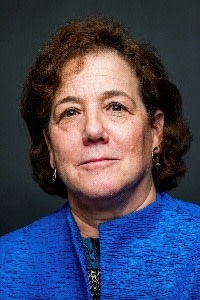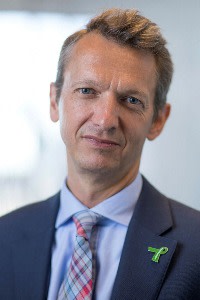Practical steps to a boardroom revolution

Simply sign up to the Sustainability myFT Digest -- delivered directly to your inbox.
As countries attempt to restore economies hit hard by coronavirus, there is also talk of opportunity: how can society and business build back better. This was the question at the heart of discussions at the FT’s Moral Money digital conference last week.
The event highlighted how the ESG (environmental, social, and governance) agenda has become increasingly core for business, a process accelerated by the pandemic. The focus for many now is how to move from talk to action.
Here are some of the highlights of the discussion:

Mindy Lubber, chief executive of Ceres, a sustainability non-profit organisation, said even the terminology should change to make sustainability a boardroom priority.
“Stop calling it ESG. These are financial issues. Climate risk needs to be looked at by the board as a risk the company faces. It needs to be integrated into all risk management.”
She adds that investors have the power to fight back against the might of say oil industry lobbyists. “The reality is, when 500 global investors are engaging with oil companies to change their practices, we are starting to see change [albeit more in Europe than the US],” she said.
“We hold managers to account for more than just financial results,” said Stephen Badger, former chairman of chocolate giant Mars. “Any business that doesn’t get on this journey will suffer in the long run — with consumers, with their own associates, and in attracting the best and the brightest.”
“The problem historically has been putting industry first . . . public interest too often gets lost,” said Adam Kanzer, BNP Paribas Asset Management’s head of stewardship. “We need to be talking about stabilising the climate rather than creating a level playing field for the market.”

Companies can be profit-focused and still meet their obligations to society, said Roger Ferguson, president and chief executive of the Teachers Insurance and Annuity Association (TIAA).
He noted, for example, that a Financial Literacy Index had exposed a large financial literacy gap among African Americans. TIAA is working at beating this by engaging with communities and using behavioural tools to help them improve their financial circumstances in retirement. This includes using automatic escalation of retirement account contributions and increasing the availability of products and services for those with low literacy levels.

Supporting employees must be a priority for companies, said Liz Hilton Segel, managing partner for North America at McKinsey. This means paying attention to their mental health, which has been strained by the pandemic, and helping employees adapt to automation and other workplace changes.
“Reskilling is a capability that every organisation will need, and needs to be building in-house, to have the ability to help their own workforce with conversions,” she said.
“We have to use agile principles — to be able to test and learn quickly,” said Lisa Gralnek, principal and founder of brand and strategy consultancy LVG & Co. “A great example is diversity and inclusion. You need to move quickly but you need to be able to try things out and fail sometimes.”
The recent elevation of stakeholder capitalism has been driven by a new recognition of risk, said Tensie Whelan, director of the New York University (NYU) Stern’s Center for Sustainable Business.
“There is an understanding that [companies] need to manage for the risks associated with societal challenges,” she noted.

Investors are realising that they cannot hedge out climate risks so will need to address them, said Ray Dhirani, head of sustainable finance at wildlife charity WWF UK.
“It’s finally dawning on people that our entire financial system is predicated on a healthy natural climate. There are moral, monetary, social reasons to move to a stakeholder model. But also a business reason: future client and staff retention.”
We need to rethink the corporation in order to better fit society now, said Andy Haldane, chief economist of the Bank of England.

Giving shareholders complete primacy does not strike the right balance between the competing interests of employees, customers, creditors and society. Companies should not give more weight to any one of these over others.
The essence of good management is to weigh plural needs. He added: “We need CEOs who can walk and chew gum — if they can’t, they probably shouldn’t be CEO.”
The FT’s Global Moral Money Summit, chaired by editor-at-large Gillian Tett, brought together global leaders and experts for a virtual event on September 30 and October 1 to examine how to shift to a form of capitalism that benefits not only shareholders but the whole of society and the planet.
You can watch videos of the event for 90 days by registering at moralmoney.live.ft.com/agenda
Comments